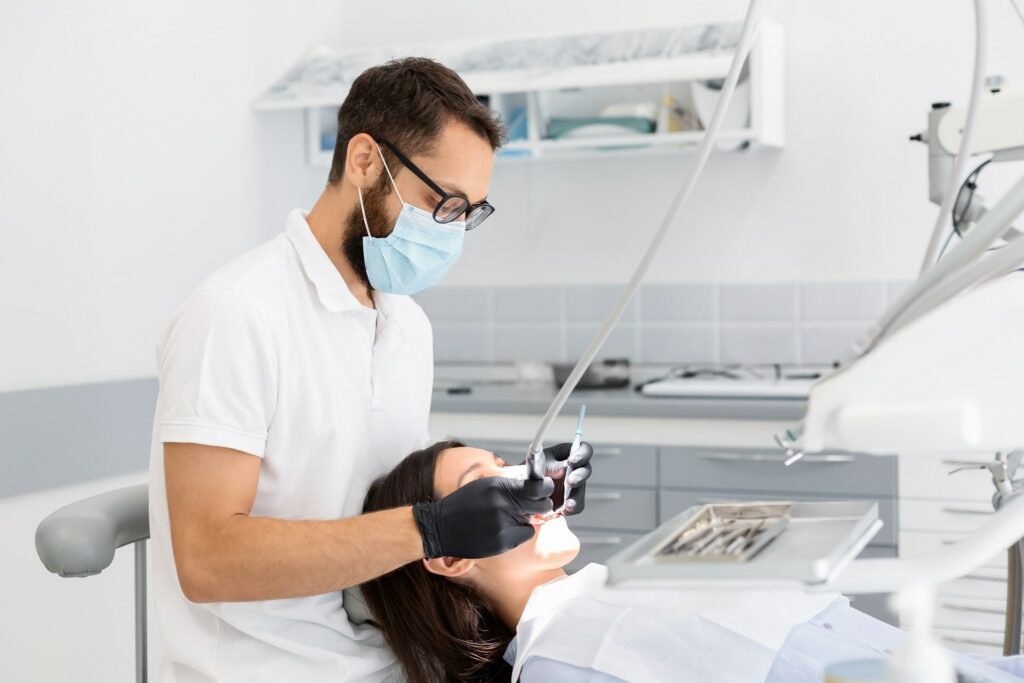Oral health issues come in many forms, from slight pain that subsides after a few days to severe disturbances that call for professional care. Annual dental checks are a necessary part of oral care, but not all patients visit the dentist every year, resulting in unexpected oral emergencies. Here are some key signs that you require dental care to help you differentiate genuine concerns from false alarms.
Inflamed or Sore Gums
If you notice any inflamed or sore gums, this will likely mean that you have gum disease, something that dentists can help with. Gum disease can be classified into two categories, with the first being a mild form. With this type, a professional dentist may either prescribe basic everyday oral hygiene practices or instruct you to get frequent checkups to monitor your gum disease.
On the other hand, severe gum disease calls for added measures as it generally involves tackling bacteria, plaque, and infections. Treatment can mean deep cleaning and scaling, which will come in handy in preventing swollen gums in the future.
White Spots on Your Gums or Teeth
Another sign you should look out for is white spots, either on your gums or your teeth. White spots on the teeth indicate decay, a factor that can lead to cavities. If, however, they appear on your gums, it could mean that you have an infection in your roots that need to be checked. It may be tempting to try to scrape these spots or pop them, especially when they appear on your gums, but it is best to leave it to the dentists. Schedule an appointment with a professional as leaving the white spots may result in greater problems down the road.
Bleeding Gums
If your gums bleed every time you brush your teeth or floss, a dentist’s help will come in handy. Ongoing bleeding gums are another sign of gum disease, a condition that requires professional care. Keep note that small amounts of blood can occur once in a while when brushing or flossing and these will generally not require any dentist’s help. Excessive gum bleeding might be a sign of a severe issue with your teeth or gums. You should immediately consult a dentist when you experience gum discomfort that affects your daily activities.
Canker Sores
Canker sores are tiny ulcers in the mouth, with most appearing in areas such as the tongue, the inside of your lips and cheeks, the gums, and the roof of your mouth. Numerous patients get these due to irritants or after accidentally biting their cheek or lip. Canker sores arising from either of these scenarios generally disappear after about a week and will not need any professional care.
However, canker sores that recur often are the reason to look up dentists near you, along with severe sores. Either of these can come from several reasons, including immunity problems, stress, and hormonal shifts. Food allergies can also lead to canker sores and will require a trained expert to identify edibles to avoid. If your sores start spreading or do not heal within a week, make sure you have your dentist check them.
Mouth Injuries
If you get into an accident and experience any injuries to your mouth, make sure you visit a dentist. Mouth injuries can lead to root damage, potentially causing more pain, infections, and other underlying issues down the line. Whether your accident is a minor altercation or one that causes significant trauma, ensure that your dentist checks it out to avoid further oral problems.
Loose Filling or Crown
Fillings help protect your teeth from infections, with most requiring frequent dentist examination and ongoing care. A variety of foods can compromise your filling or crown’s integrity with hard bites causing them to chip off or go missing. If you notice either of these, ensure that you get your dentist to look at it. This will be essential in keeping any debris away from cracks in your teeth and protecting from infections.
Tooth Pain or Swelling
Tooth pain can cause sleepless nights and will often not subside until you visit your dentist. If you experience sharp or continuous pain, there is an underlying problem that needs to be checked and only dentists can help with that.
Swelling around your teeth is another sign that indicates a deeper problem, with most diagnoses often leading to an infected root. Signs of such infection include swollen cheeks or swelling around the infected part of your tooth. To help with this, your dentist will likely prescribe an antibiotic to bring the swelling down, after which they will proceed to identify the cause of the infection and then treat it.
Sensitivity to Hot or Cold Meals
A good number of patients have sensitive teeth, making it a fairly normal oral condition. The problem, however, comes in when you experience sudden sensitivity when eating food such as ice-cream or drinking hot coffee, especially where previous consumption has not been an issue. If you experience sensitivity in these extreme temperatures, schedule an appointment with a professional. Dentists can pinpoint the exact cause of this since most sensitivity stems from deeper issues that you may not be aware of.
Cracked or Chipped Teeth
If you get a chipped tooth or notice any cracks, consider looking for dentists in your area during your online search. Either of these problems will require a proper tooth repair, with immediate attention being the ideal option. Whether it is a small crack or chipped tooth, make sure to book an appointment immediately after you notice it.
Chronic Dry Mouth
Having dry mouth can come from various issues, with the most common being underlying health issues or current antibiotics. If you are dealing with either of these, experiencing dry mouth will be a likely side effect. Concern, however, comes in when you experience prolonged periods of dry mouth. Lasting dry mouth may lead to other issues such as gum disease, with the only solution being a visit to a dentist. Your dentist will either prescribe specific mouthwash or advise you on alternative methods of treatment upon your consultation.
Headaches with Instances of Teeth Grinding
If you experience headaches, teeth grinding, and jaw pain, you may want to consider visiting a dentist. These signs may also come with neck pain and you may find yourself clenching your teeth. A combination of these symptoms indicates problems in your temporomandibular joint, an area that only dentists are trained to treat. Based on your problem’s severity, treatment may involve sticking to your dentist’s recommended exercises or techniques designed to handle stress relief. For more severe issues, you may be required to wear specific devices at night to help with your problem.
Loose Teeth
Loose teeth also cause concern as they may be evidence of lingering problems. Whether you experience any pain or have no pain at all, it will still pay to have dentists in your area have a look at it. Teeth that have also been knocked out fall under this category and require treatment to ensure that you do not experience infections or root issues later on.
If you are looking for a qualified dentist near you, consider Comfort Smiles Dentistry. Our dental services cater to urgent oral needs and ongoing oral hygiene practices to allow you to reap the benefits of a healthier dental future. Do not wait until your teeth problems become severe. Seek expert assistance as soon as possible by contacting our office.






